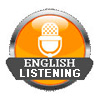Condicionales (wish, if only)...
Ejercicios breves de repaso...
Guía de gramática inglesa y guía de estilo
Buscar ayuda en nuestro Grupo de Facebook
Buscar palabras y términos gramaticales muy específicos
Ver contenido en página principal...
Condiciones y política de privacidad
